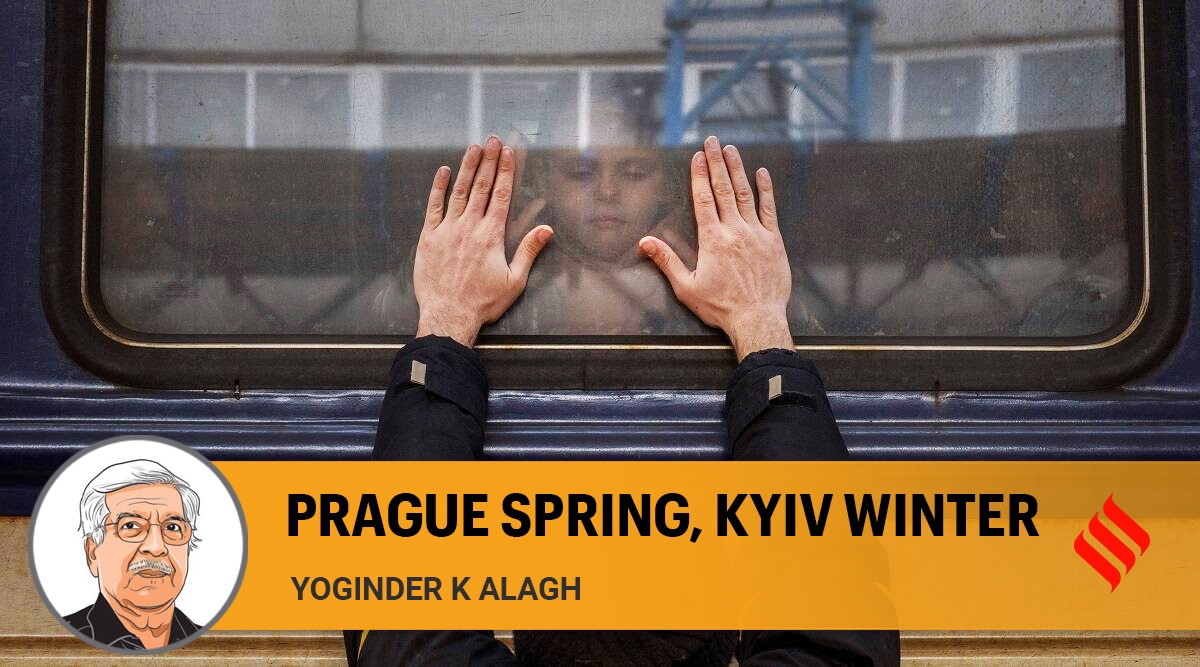I was at the Indian Institute of Management in Calcutta, leading a team to study domestic and export prospects for Indian machine tools. These were real machine tools – not the abstract sector of the Mahalanobis K sector model. I was working with the famous Indian industrial design company, MN Dastur.
Dastur engineers visited some countries. I went to Czechoslovakia and then joined a Dastur engineer in Africa where they were buying HMT tools. Czechoslovakia boasted of being an advanced European country. Bata was their best known brand, but there were many other companies, especially in the machine tool section. After Marshal Tito’s Yugoslavia, which had left the sphere of influence of the Soviet Union before, it overthrew the Bear and was to become an independent socialist state. In the meantime, he had an interim government. It was the Prague Spring of 1968.
By late spring 1968, everyone and his uncle had landed in Prague. The Czech capital had about 10,000 hotel rooms but 1,500 people arrived there daily. My hosts said no rooms were available. But do you have a driver’s license, they asked me. I said yes: my American driver’s license was still valid. They were happy with the “American license”. A room was reserved for me in Horovice, near Plzen, where Pilsner beer comes from, and I was given a Skoda car for daily hire. I had to drive to Prague every day.
Horovice’s hostel was actually a bar with two nicely furnished rooms on the first floor. I was given one. I went to the bar around 7 p.m. and started with a Pilsner. Locals were there – very friendly to visiting “Indians”. I struggled to pay for a ride. After eating sausages and goulash, around 11 p.m., I would go up to my room, longing for some well-deserved sleep. When I came down for breakfast early the next morning, eagerly awaiting my toast and black coffee, to get over my hangover, my “friends” were back for more beer and sausage, before going to work . I would then drive my Skoda through beautiful Bohemian countryside in good weather to Prague, stopping along the way for fresh strawberries. All was well and the Lord was in his heaven.
In Prague, the men and women I worked with were very proud Czechs. They took great pleasure in explaining to me the industrial and economic history of the country and that their economists, who had emigrated to the United States, like Paul Rosenstein-Rodan, referred to the Baltic countries for examples of backwardness, for the Big Push and Balanced Growth theories, not Czechoslovakia. They showed me Czech art forms, both in galleries and in public places like parks, train stations and in their cathedrals, and got passes for tables in overbooked restaurants for great meals with me.
Their machine tools were still among the best in the world. I admired the advanced material used, the flexibility built into the design to incorporate additional auxiliaries to support what would now be called multitasking. They knew HMT and were very keen to cooperate in joint ventures. They had the confidence to share and thrive, rather than being secretive in the tyranny of IPRs. Again, a feature the teacher in me loved.
I left the country with the shells of my heart warmed by Horovice, the beauty and warmth of the Prague Spring, and my admiration for good mechanics. When I landed in Calcutta, viewing another visit to the Howrah, the newspapers had headlines, “Soviet Tanks in Prague.” The Prague Spring was over.
One evening, as the breeze was blowing, my friend the economist KN Raj, sitting in his pretty house on a hill in Thiruvananthapuram, built by Laurie Baker with local materials, told me how difficult it was to convince our socialist friends the need to combine freedom and social institutions. Prague then, Kyiv now, another beautiful city where I stayed. The problems of democratic socialism remain. Also in the homeland. Everything changes, but nothing really changes.
This column first appeared in the print edition of March 16, 2022 under the title “Prague spring, kyiv winter”. The writer is an economist and a former Union Minister

